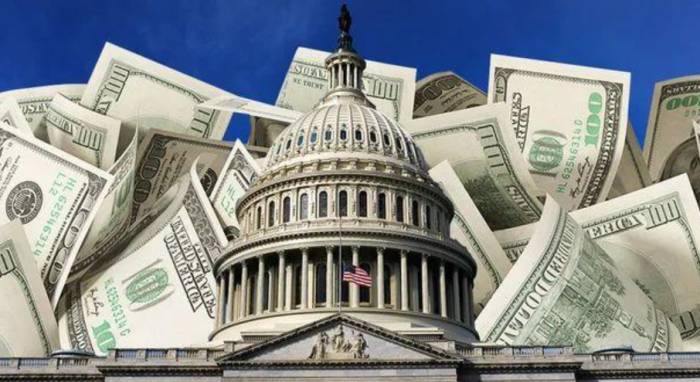Logistics Giant Plunges, 40-Year Record; US Considers 100bp Rate Hike Amid Clear Recession Signs
Next week, the Federal Reserve is set to raise interest rates, and following the release of underwhelming CPI figures, the market now considers the possibility of a 100 basis point hike to be over 30%.
The question is, does the United States truly dare to raise interest rates so aggressively?
After all, an increasing number of signals indicate that the U.S. economy is entering a recession.
01
If we only look at last night, the decline in the three major U.S. stock indices is not particularly significant; the Nasdaq Composite, which saw the largest drop, fell by 0.9%, not even reaching 1%, while the other two indices fell by 0.4% and 0.7%, respectively.
However, when looking at the entire week, the Dow Jones Industrial Average fell by more than 4%, the S&P 500 Index dropped by 4.77%, and the Nasdaq Composite plunged by 5.48%. On the weekly charts, all have shown a bearish engulfing pattern.
But what is even more concerning is that the latest financial reports released by some companies indicate that the U.S. economy is deteriorating.
02
During this period, we have witnessed several Chinese concept stocks exhibiting extreme volatility, with significant ups and downs. However, it was unexpected that such performance would also be seen in a U.S. logistics giant.
Advertisement
FedEx released its latest financial report, and due to the disappointing data, its stock price plummeted by 21.4% on Friday, marking the largest single-day drop for the company in 40 years.Financial report data indicates a continuous deterioration in the global logistics market, with analysts pointing out that this is the worst performance in the past 20 years since they have been tracking the company.
An increasing number of data from publicly listed companies in the United States is sounding the alarm for the U.S. economy.
Following two consecutive quarters of negative GDP growth on a quarter-over-quarter basis in the United States, entering a technical recession, U.S. President Joe Biden forcefully explained that these figures are insignificant, as there has been no large-scale unemployment or a significant number of corporate bankruptcies in the country.
When the latest CPI performance in the United States fell short of expectations, U.S. President Joe Biden once again offered this explanation, arguing that numerous measures have been taken and their effects are beginning to be seen, albeit slowly. He believes that combating inflation is a long-term process.
Only the financial data of publicly listed companies require no explanation, being straightforward and clear, and an increasing number of companies, like FedEx, will be sending out ominous market signals.
03
Under the current pace of interest rate hikes, the stock prices of tech giants are the most affected.
Many tech giants have experienced significant declines this week, with META and Nvidia both seeing substantial drops, while the Nasdaq index fell nearly 6% this week, marking the largest weekly decline since January of this year.
An increasing number of companies' stock prices have reached new lows in nearly a year, including Google and Intel.
The sharp decline in tech giants has also led to a reduction in the wealth of many billionaires. After a 4% drop, Jeff Bezos fell from the 2nd to the 3rd position on the global billionaires list.It now appears that unless the issue of high inflation is addressed, it will be difficult for these tech giants to see an improvement in their situation. The reason is that high inflation inevitably leads to high interest rates, and when interest rates are too high, the first thing that suffers is growth potential. For tech giants, valuations will plummet significantly.

Over the past decade or more, the U.S. bull market has been driven by tech giants. When this driving force disappears, both the U.S. economy and the U.S. stock market will enter a major bear market.